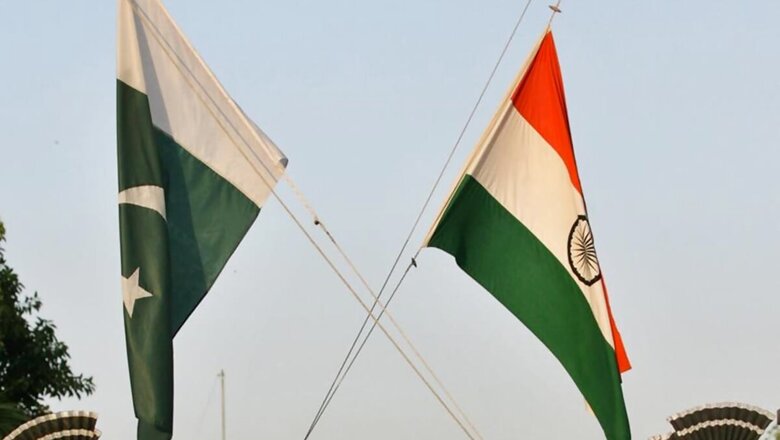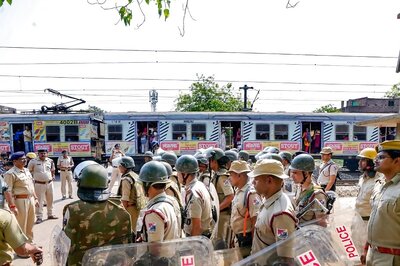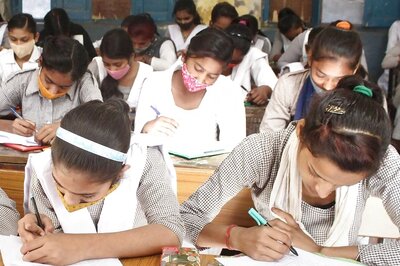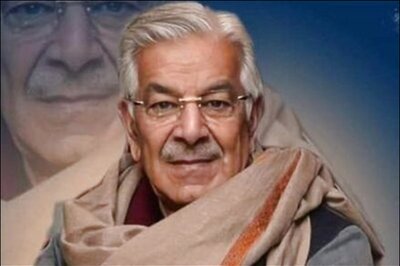
views
India on Wednesday hit out at Pakistan at the United Nations Human Rights Council for ‘crushing dissent and engaging in political repression in Balochistan, and other regions, for decades’ with ‘Enforced disappearances, arbitrary detentions and torture being used as tools of coercion.’
Indian Diplomat Seema Pujani expressing her Right of Reply at the high level segment of the 46th Human Rights Council, highlighted how ‘Several Baloch human rights defenders have even met tragic death under mysterious circumstances, while in exile’. She said that the “Pashtuns and Sindhis too have continued to struggle against the systemic oppression and discrimination.”
In her speech, pointing out the Instances of repression of journalists and civil society activists, Pujani said, “Gulalai Ismail, a Pakistani human rights defender who campaigned against violence against women and enforced disappearances was charged with sedition, terrorism and defamation in May 2020. In August 2020, Ms. Ismail sought refuge in the USA. As retribution, the Pakistani authorities have now arrested her father, Muhammad Ismail, on ‘terror’ charges.”
Pujani further said that, “In September 2020, UN human rights experts condemned the enforced disappearance of Idris Khattak, a fomer consultant with Amnesty International and Human Rights watch. Mr Khattak had himself worked on reports on enforced disappearances in Pakistan’s Federally Administered Tribal Areas, before disappearing himself in November 2019, in a cruel twist of fate. The UN human rights experts have called upon the Pakistani authorities to end Mr Khattak’s secret detention at the earliest.”
#BREAKING: India hits out at Pakistan at the UN Human Rights Council in Geneva. Indian diplomat Seema Pujani says, Jammu & Kashmir/Ladakh are an integral and inalienable part of India. India raises issues of HR Activist @Gulalai_Ismail and enforced disappearance of Idris Khatak. pic.twitter.com/Mi7j4ETkfX— Aditya Raj Kaul (@AdityaRajKaul) February 24, 2021
India in its strongly worded statement also said that the condition of women belonging to minority communities, notably Hindus, Sikhs and Christians, remains deplorable. “An estimated 1,000 women from minority communities are subjected to abduction followed by forced conversion and forced marriage in Pakistan every year, according to a recent report published by the Human Rights Commission of Pakistan. Most of these women fall in the age-bracket of 16-25 years. The fact that young women, and not men or older women, are the main victims of forced conversions is a telling fact about Pakistani society. Shias, Hazaras and Ahmadiya communities have continued to face persecution, state-condoned violence and discrimination,” the statement read.
‘Pakistan Home for Terrorists’
On the eve of the decision by Financial Action Task Force (FATF) on Pakistan, India’s UN Human Rights Council statement also mentioned recent incidents where Pakistan was seen safeguarding the interests of terrorists on its soil.
“Pakistan has been the home and patron to the largest number of internationally proscribed terrorist entities and individuals in the world. As many as 126 individuals and 24 entities, sanctioned under the UN Security Council 1267 and 1988 Committees’ Lists, are associated with Pakistan. State-sponsored terrorism by Pakistan is a threat, not only to India but to other countries in the region and beyond,” Pujani said in her statement.
“The recent aquittal of Omar Saeed Sheikh, the al-Qaeda terrorist and murderer of the American journalist Daniel Pearl by the Pakistani Supreme Court is a clear example of the Pakistani establishment’s nexus with such entities and, as the US Secretary of State said, it is ‘an affront to terrorism victims everywhere’,” she said.
India requested the UN Human Rights Council to call upon Pakistan to take credible and irreversible steps to end state-sponsored terrorism and dismantle terrorist infrastructure in the territories under its control.
The statement also reiterated that the entire Union Territories of Jammu and Kashmir and Ladakh are an integral and inalienable part of India and steps have been taken by the Government to ensure good governance and development in these Union Territories as internal matters.
Read all the Latest News, Breaking News and Coronavirus News here



















Comments
0 comment